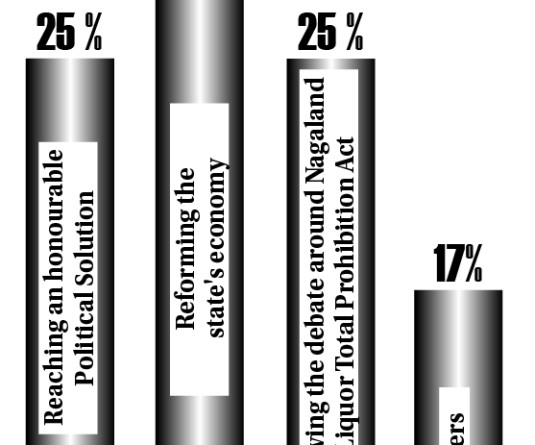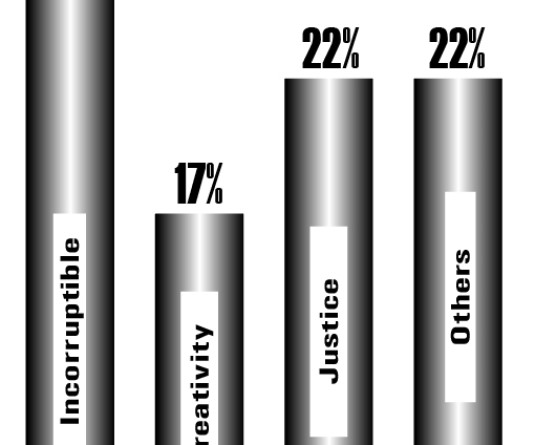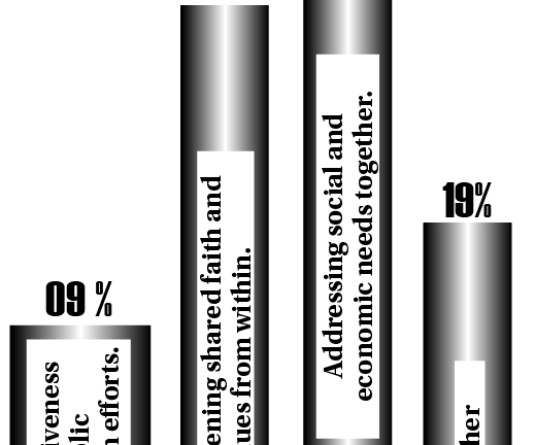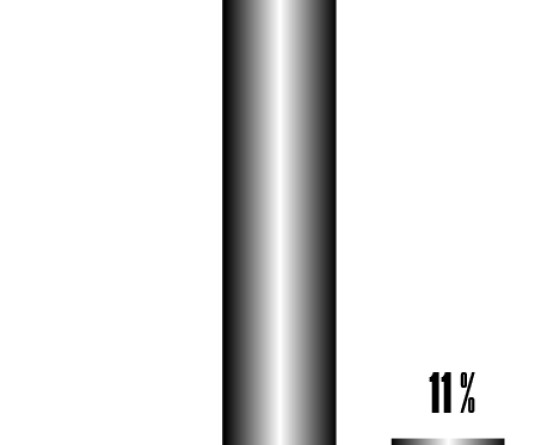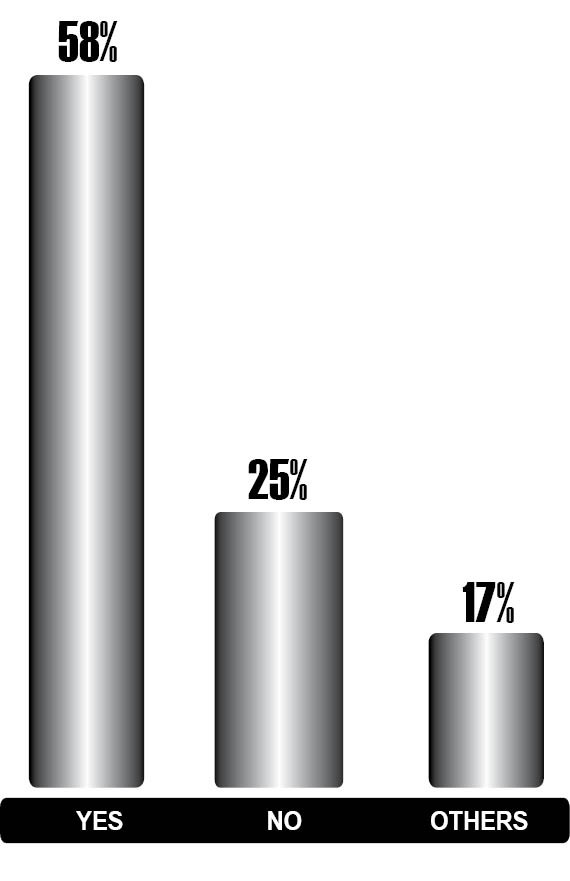
Some of those who voted YES had this to say:
• Yes, and the reason i think it could help is because we live in a society where the paradigms are exploited and scattered. Lets not jump right into post modernism (go with the flow and see where it goes) but go back and enlighten our self with modernist thought's that values scientific knowledge, a linear view of history and most importantly understand the human/social needs and nature.
• Corruption is rampant in Nagaland because everything is going to ministers and bureaucrats and the top officials. But if development process were to start from the bottom rung of the society, the people will be the ones who will most benefit from the development process. This should also reduce corruption to a large extent.
• In this bottom up development, the public will have the maximum say in how development activities in there are should be. They will benefit the most and this is what development should be about.
• Yes, it will improve.
• Yes, this is the way forward. The trickle-down effect does not work. It has not worked in Nagaland for more than forty years, so they should not expect it to work today as well. The best way towards achieving equality is to have a bottom up approach where the people themselves decide what is best for all.
• Yes, an approach to development thru' such can reduce the gap though not totally. When the gap is narrowed, we'll have easier overall management for the better, with close affinity and mutual understanding accessible anytime. And here, politics and politicians as well as NGOs with political/money interests should be kept out completely, who'd only take the whole thing for a ride as always.
• The disparity can be reduced through developing tiny industries.
• As far as the government is concerned, they think that the top-down method is the best because that is how they get their share. They are scared therefore that a bottom up approach would mean they would lose their side income.
• Nagaland is a country made up of villages. So unless the development process begins with the villages, how can anyone expect any development to take place in Nagaland.
• Yes, grassroots level should be encouraged to collectively fix goals for their own community’s development and implement their own means to achieve them.
• The gap between rich and poor is becoming a major problem in Nagaland. If it is not dealt with, it is going to cause a lot of law and order problem and will lead to increase of criminal activities. A change in approach to development may not eradicate the problem, but it will help in giving a lot of relief to the people who are not getting their due share.
Some of those who voted NO had this to say:
• No method will reduce the gap, till the greed of money of the rich is curb. Corruption will surely be there no matter what system they employed. The favorite overused phrase of the Politicians, bureaucrats, is "development at grassroot level" LOL. i wonder if they knew the meaning of grassroot.
• How do you expect any changes to come about when people are not willing to change at all. There is no doubt that the bottom up approach to development is the most democratic and participatory form of development. But in Nagaland, the corrupt situation will not allow anything good.
• Unless corruption is eradicated, I don’t see any hope in making Nagaland a better place for all of us.
• The work culture should improve. Just changing the approach to development is not sufficient. The peoples mindset and attitude towards work needs a lot of improvement.
• This works only in theory, not in practice. For this approach to be successful, people should be aware of their rights and must be in a position to hold the government responsible and accountable for every action.
Some of those who voted OTHERS had this to say:
• I cant say… as individualism or tribalism strives for “domination,” not for freedom and equality. “Domination” is the essence of individualism or tribalism policy, in the sphere of its internal as well as external policy. This striving for “domination” on the part of individualistic-monopolistic-tribalistic amongst one another inevitably leads to a wider gap between the glittering riches and the downtrodden poor. So “domination” to put it briefly, is the substance of individualism –policy, of which divisions and gaps is the continuation and for that matter most of us suffer as a result of class divide. However, remember for a moment that only with the complete abolition of society’s division of classes, isms and “domination” can we look forward, but with the mess up prevailing status quo, it is too early to leap on the “bottom up approach strategy.”
• People want development, but just wanting is not enough. Our development must start with the people. Only when people are aware of their rights than can they hold the government responsible and accountable. No amount of shouting will bring about improvement. It should start with the people.
• Nagaland is largely a rural state and with the difficult terrain, accessibility is a key issue, preventing development from reaching most areas. The top-down approach, where planning and implementation of developmental policies takes place at higher level is ineffective due to lack of or errors in socio-economic data input from the remote areas. Without proper appraisal of local needs and accurate identification of developmental gaps, any grand strategy is bound to fail. Modern market-based developmental paradigm does not seem to be applicable in rural and remote areas where the problems is mostly of economic isolation. A 'Bottom-up' development strategy promises to address most of the problems faced by rural folks, because it is sensitive to local needs and is rural centric. To allow meaningful participation of the rural population in the modern market economy what is required most are good all-weather roads. This will not only facilitate easy flow (in and out) of manpower, capital and other resources and but will also allow access to external markets for their local produce. The success of this 'bottom-up' approach will invariably depend very much on the quality of leadership at the local level. As an example, communitization programs have largely failed in most areas of Nagaland due to managerial incompetency at local level. It is therefore important that capacity and leadership building strategies be incorporated in any development plan designed for the upliftment of the rural population.
• The bureaucracy must change. The public attitude should change and the government definitely needs to change its policy.


